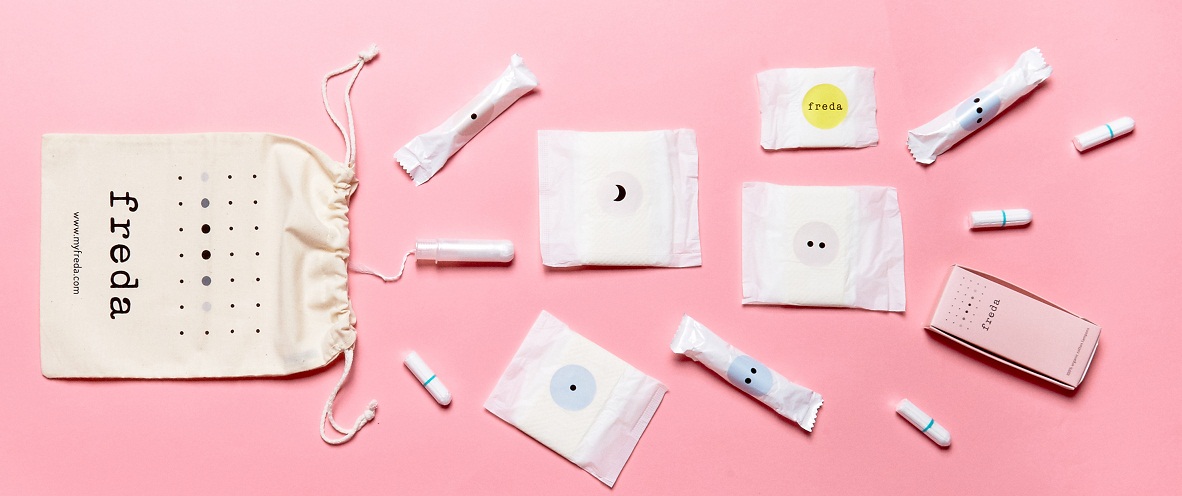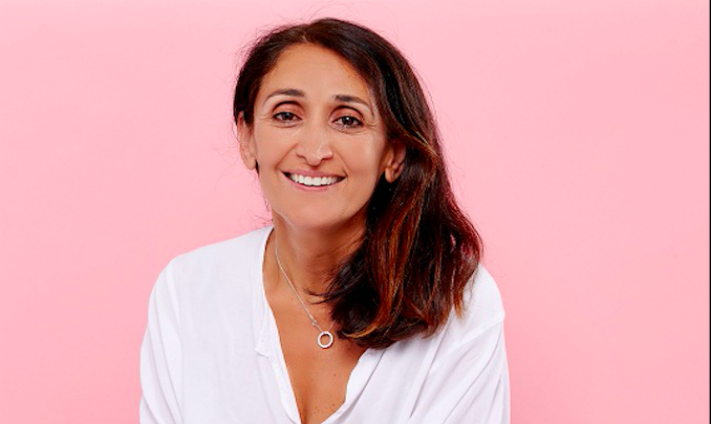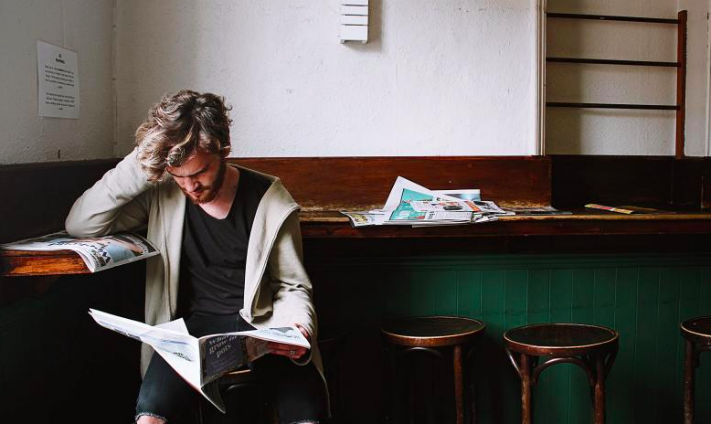AI is changing the way the world works from agriculture to healthcare. Now one savvy startup is using it to change the way we buy period products.
Freda, an organic, eco-friendly period care range is rebooting femcare for the 21st century.
We caught up with Freda’s founder Affi Parvizi-Wayne to talk about the business and how they plan to shake up the market.
Where did the idea for the company come from?
I was inspired to start Freda after seeing refugees stuck at various border crossings in Europe on the news. Coming from a refugee background myself, these images really struck a chord with me, and I began to consider the practical ramifications of that sort of displacement. I found that these women just don’t have access to period products and that they aren’t included in the hygiene kits provided by the UN and relief organisations. Societal taboos and stigma have caused the menstrual needs of women to be overlooked, in refugee camps and in all public spaces.
The more I looked into it, the more I became frustrated with the impact of this stigma. Not just on access to these products, but on how they are made, with cheap unnecessary chemicals that don’t legally have to be disclosed and marketed, patronisingly! I want Freda to represent something new in this stagnant industry, both in terms of the product itself and what we stand for.
Why has the company been successful?
Women today are savvy consumers. They demand transparency, efficacy and responsibility from the brands they buy from. Freda provides that. They know what goes into their food, beauty products, detergents… why not their tampons?
What’s been the biggest challenge?
Periods aren’t a glamorous or sexy subject so it can be hard to spread our message. At Freda, one of our slogans is ‘Periods are private, not secret’. We want to get away from the idea that they’re an embarrassing secret, without going to the other extreme and confronting you with images of blood! So it’s all about getting the balance right.
 What is the team structure at the moment?
What is the team structure at the moment?
We have a small team of three women and we each have our specialities. We’re also formalising an advisory board, made up of mentors and advisers from various fields who have lent their support so far.
How are you using AI within your business?
Our AI is in the form of our Period Calculator, which asks our customer to input their cycle length, period length and period start date, and then uses this information to schedule her delivery. We’re working on developing this feature to incorporate questions on their flow so that we can put together the mix of absorbencies that’s right for each customer.
Why have you decided to revolutionise period care?
The period space is overdue an overhaul. The product is over-engineered simply in order to gain retail shelf-space in the name of ‘innovation’.
Do you feel like there is still a stigma around periods? Why?
The stigma around menstruation is intrinsically linked to sexism. Periods are seen as a loaded signifier of women’s sexuality, which is inherently sinful traditionally. Even the use of the word ‘sanitary’ to describe pads and tampons signifies that there is something dirty about periods, which is why we’ve coined the term ‘period care’. As progress is made in the movement towards women’s equality, this way of thinking will necessarily be challenged.
For periods to shed these negative associations, it’s important that they’re recognised simply as a routine, healthy process. The inclusion of pads and tampons in hotels, gyms, offices, schools and refugee camps all helps towards normalising what is a natural process, and these are practical steps we can take.
Is Freda helping to fight period poverty?
Freda was founded very much as a social enterprise and our giveback pledge is at the core of our business. We’re doing what we can to tackle period poverty by donating a portion of each subscription to initiatives such as Bloody Good Period and KiliPads, which provide period care products to women who can’t afford them, along with menstrual health education. We also use our website as a platform for external donors to donate pads directly to these charities at a rate that’s subsidised by our profits.
Are there any challenges unique to femtech?
One particular challenge is that it’s changing the relationship women have with their health via technology. Technology will not only allow them to get to understand their bodies better, but in Freda’s case, it will allow us to provide a personalised and timely delivery for a seamless service.
What is next for the brand?
We hope to raise awareness of the brand and get into spaces where traditionally femcare hasn’t been seen.
Enjoyed this article? Subscribe to our blog.












